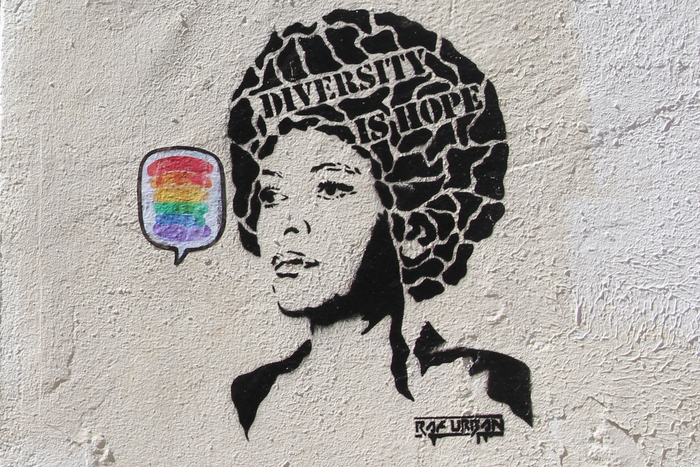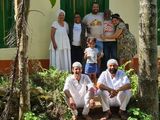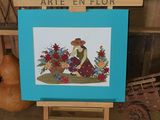Globally, the tourism sector is largely made up of women. However, only one out of four CEOs in the industry is female. Instead, many women remain on the lowest rungs of the career ladder in low-paid jobs. Opportunities for further training and promotion within tourism companies are most likely in administration positions, but not for the women working under precarious conditions in room service or hotel laundries. Starting a business can be a strategy to become your own boss. Three women report on the ups and downs of their entrepreneurship.
Working for commitment: Afro-tourism in Brazil
Entrepreneurship can be the ticket to a self-determined life for women. However, the entrepreneurs Solange Barbosa and Kelly Tavares did not start their own business just to become economically independent. Rather, the two Afro-Brazilian women are committed to their cultural heritage. "With my travel company Rio EnCantos, I bring together tour guides and organisations to tell travelers about our Afro-Brazilian culture. A story that is still underrepresented among tour operators in Brazil," says Kelly Tavares. Previously, she had worked in schools, museums, and NGOs. But when the jobs became scarce, she decided to start her own business. "I wanted to continue doing something meaningful. A job where profit prevails over mission did not match my professional vision. That's why I decided to change industries and studied business administration. Now I promote responsible tourism.” A risky decision as there are few securities for Brazil's self-employed: "If I become unable to work or retire, I won't be able to live on my state pension alone."
Constraint care work
Solange Barbosa is also a classic career changer to the industry. "The journey to self-employment was full of obstacles. I came to the region in 1995 with four young children and got divorced. I worked as a cook in bars and restaurants or as a cleaner. When I got to know the hospitality industry in 1999, I immediately thought, 'That's what I want to do!'" The mother of four was able to work her way into self-employment with a lot of childcare support. "My parents were always there for my children while I took care of my business. They took them to daycare and picked them up again. I, on the other hand, stayed at home when the kids were sick, took them to the doctor and paid for all expenses such as food, clothes and education. I did not receive any support from my ex-husband." Barbosa did not stay in the restaurant business. Instead, she started her own travel company. Since 2015 "Sol Barbosa - Turismo e Cultura" combines travel agency, guided tours, arts and crafts and culture. On her Roteiros da Rota da Liberdade, the Route of Freedom, she takes travelers on the trail of Africo-Brazilian culture. She earns a lot of respect and recognition for her social engagement in Afro-tourism and has already won two awards for her work. "I am proud of what I have achieved. Today I generate my own income. Two of my children work in my company. I have managed to strengthen Black communities and am a respected stakeholder in Brazilian Afro-tourism."
Handicrafting into economic independence
Even without an academic career or previous experience, women can successfully start their own business in tourism. One example is Maria Elena. Together with other women, she produces pictures and cards from dried flowers and leaves. Supported by the Ministry of Agriculture, she sells them every Wednesday at a small market in her community of Comasagua in El Salvador, mainly to tourists. For decades, the only job opportunities in the small community were in farming. "I myself worked in a factory and as a cleaner before. But the work was exhausting because I had to travel over an hour by bus to work. That was a big burden." Today she is better off. "I can work from home and take care of my family. I also like my work much more."
Women as entrepreneurs: No self-runner
Since COVID-19, all three women struggle with their enterpreneurship. Since tourists have disappeared, Maria Elena hardly sells her handicrafts to travelers. But she has found an interim solution: Customers can still buy her products via WhatsApp. For example, self-designed Christmas or Easter cards, decorated in her style with dried flowers. Kelly Tavares and Solange Barbosa also had to suspend their businesses during the pandemic. None of them received any support from the state during this difficult time. But unlike Tavares, who had to look for other jobs to stay afloat, Barbosa was lucky: "In 2020, I won a competition for sustainable and innovative tourism, which came with prize money of R$ 100,000 (equivalent to about EUR 18,000). With this money, I was able to continue supporting the Quilombos and repair a broken water wheel in their community. At the same time, I was able to continue paying all my employees." The examples show: Owning a business can bring more self-determination and empowerment to women. But starting a business isn’t a self-runner. Women in particular have less access to loans or economic stimulus packages. These could cushion economic losses in the event of external shocks and prevent women entrepreneurs from sliding into poverty. How important it is to strengthen the resilience of female entrepreneurs becomes especially clear in times of pandemic. But also, other crises before have shown how important sustainable business models are that allow to build financial reserves and enable more diverse business concepts when the tourism industry crashes.
Kelly Tavares founder of Rio Encantos: quasarte.wixsite.com/riotour
<drupal-entity data-embed-button="media" data-entity-embed-display="view_mode:media.tourism_watch_inline_full" data-entity-type="media" data-entity-uuid="9e02769f-599e-4a7b-8dcd-df20a4adba56"></drupal-entity>
Solange Barbosa – with her family – founder of Rota da Liberdade: rotadaliberdade.site/
<drupal-entity data-embed-button="media" data-entity-embed-display="view_mode:media.tourism_watch_inline_full" data-entity-type="media" data-entity-uuid="e9452e3c-37a0-4546-814a-8dd72cdcf5b9"></drupal-entity>
Together with other women, Maria Elena makes postcards and decorative objects from dried flowers under the name Arte en Flor: www.facebook.com/hellenflore/
<drupal-entity data-embed-button="media" data-entity-embed-display="view_mode:media.tourism_watch_inline_full" data-entity-type="media" data-entity-uuid="7609c004-11d2-4183-aad3-b6b8d7570487"></drupal-entity>





